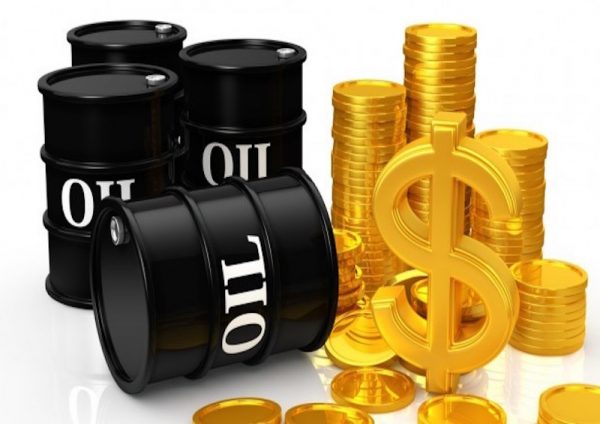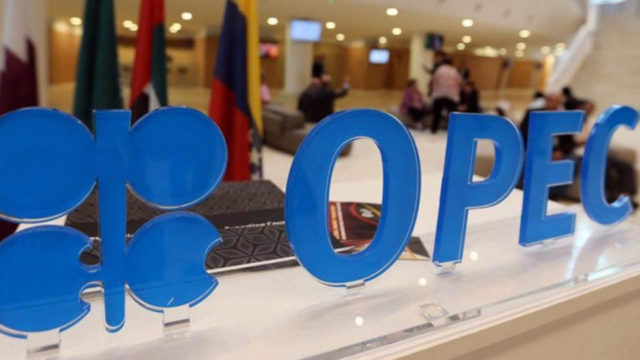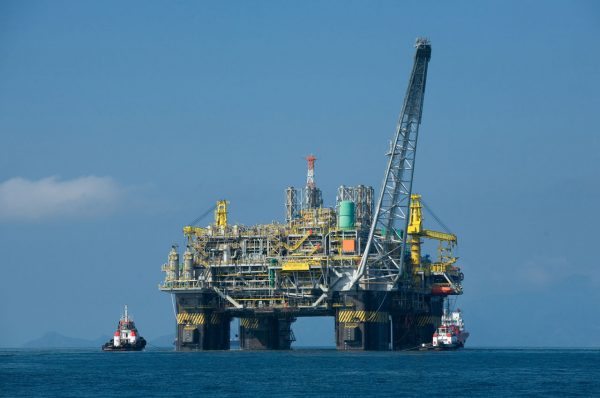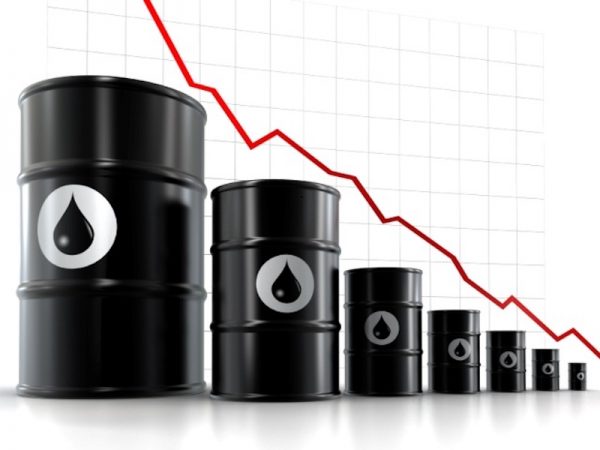With Strike in Norway, Libyan Disruption, Crude Oil Price Rises to $79
•NNPC records N11.72bn surplus after long streak of losses
•House probes alleged N100bn under-remittance by corporation
•N’Assembly transmits PIGB to Buhari for assent
Crude oil prices rose by over one per cent towards $79 per barrel Tuesday due to growing supply outages, as Libyan production reduced by more than a half, while Norway shut down one oilfield following an industrial action by hundreds of workers.
This is coming as the Nigerian National Petroleum Corporation (NNPC), which had been on a long streak of business losses, has finally recorded a trading surplus worth N11.72 billion, according to the corporation’s monthly operations and financial report.
But despite the claim that it recorded profit in March, the corporation will face a probe panel set up by the House of Representatives for failing to remit N100 billion proceeds from crude oil sales in May and June 2018.
Also, Nigeria’s oil and gas industry is set to overcome the 10-year-old uncertainty in the operating environment, which has hindered investments as the Petroleum Industry Governance Bill (PIGB), passed by the National Assembly in March 2018, has been transmitted to President Muhammadu Buhari for his assent.
The disruptions of crude oil production in Libya and Norway have added to the supply worries around the world.
Venezuela’s production has collapsed due to a lack of investment and Iranian exports have suffered due to US sanctions.
The Organisation of Petroleum Exporting Countries (OPEC) has little capacity to fill the gap as demand for oil quickens.
The global benchmark, Brent oil futures rose by 96 cents, or 1.2 per cent, to $79.03 per barrel.
They earlier hit an intraday high of $79.29, while Brent had gained 1.2 per cent on Monday.
The United States light crude futures were up 35 cents, or 0.5 per cent, at $74.20 per barrel.
Reuters reported that hundreds of workers on Norwegian offshore oil and gas rigs went on strike Tuesday after rejecting a proposed wage deal, leading to the shutdown of one Shell-operated oilfield.
That potentially adds to disruptions in other oil producers amid tensions in the Middle East.
Libya’s national oil production fell to 527,000 barrels per day (bpd) from a high of 1.28 million bpd in February following recent oil port closures.
The United States said it wanted to reduce oil exports from Iran, the world’s fifth-biggest producer, to zero by November, which would oblige other big producers to pump more.
Iran’s Vice-President Eshaq Jahangiri acknowledged Tuesday that the US sanctions would hurt his country’s economy, but vowed that his country would “sell as much oil as we can” and protect banking.
Jahangiri said Washington was trying to stop Iran’s petrochemical, steel and copper exports. “America seeks to reduce Iran’s oil sales, our vital source of income, to zero,” he said, according to Fars news agency.
“It would be a mistake to think the US economic war against Iran will have no impact,” Jahangiri added.
President Donald Trump said in May he would pull the United States out of an international accord under which Tehran had agreed to limit its nuclear development in exchange for sanctions relief.
Trump said he would reintroduce sanctions and Washington later told countries they must stop buying Iran’s oil from November 4 or face financial consequences.
The US ambassador to Germany Tuesday called on Berlin to block an Iranian bid to withdraw large sums of cash from bank accounts in Germany.
But Jahangiri said Iran’s foreign ministry and the central bank have taken measures to facilitate Iran’s banking operations despite the US sanctions.
Jahangiri accused Washington of trying to use the economic pressure to provoke street protests in Iran.
However, Saudi Arabia, other members of the OPEC and allies, including Russia agreed last month to increase output to dampen price gains and offset global production losses.
The market has grown concerned that if Saudi Arabia offsets the losses from Iran that will use up global spare capacity and leave markets more vulnerable to further or unexpected production declines.
NNPC Records N11.72bn Surplus after Long Streak of Losses
Meanwhile, the NNPC, which had been on a long streak of business losses, has finally recorded a trading surplus worth N11.72 billion, according to the March 2018 edition of its monthly operations and financial report.
According to the report, which was uploaded on the webpage of the corporation by THISDAY, the corporation appeared to have equally made some profits in its operations in February.
The March report showed that the NNPC recorded a trading surplus worth N16.72 billion.
It explained that its March earnings were N4.99 billion short of what it earned in February.
“This 32nd edition of the report indicated a trading surplus of N11.72 billion which is relatively lower than the previous month’s surplus of N16.72 billion. This represents N4.99 billion decline from February 2018 performance,” said the report.
It indicated that earnings from some of its subsidiaries which included the Nigerian Petroleum Development Company Limited (NPDC), Integrated Data Services Limited (IDSL), NNPC Retails, the Nigerian Gas Processing and Transportation Company (NGPTC), and Nigerian Gas Marketing Company (NGMC) were responsible for the surplus, even though NPDC had a reduction in its oil production and revenue.
As usual, the report showed that the three refineries of the corporation in Port Harcourt, Warri and Kaduna continued on their loss-making streak, recording a collective operating deficit of N11.89 billion in March.
“This low performance is attributable to the refineries’ downturn with high cost of operations and reduction in NPDC’s production resulting to decline in their revenue,” added the report.
Before the release of the latest report, NNPC’s most recent profit was recorded in May 2016.
House Probes Alleged N100bn Under-remittance by Corporation
However, the House of Representatives Tuesday passed a motion, seeking to set up an ad hoc committee to probe crude oil sales by the corporation in May and June 2018, as well as other sources of funds to the corporation, and report back within two weeks for further legislative action.
The lawmakers alleged that over N100 billion might have been under-remitted by the NNPC within the period under review.
This followed a motion brought ‘under matters of urgent public importance’, by Hon. Nicholas Ossai (PDP, Delta).
He noted that the monthly meeting of the Federation Account Allocation Committee (FAAC) for June could not hold due to under-remittance by the corporation.
He said it would not be the first time that the NNPC had failed to pay what was fully due to the federation, thereby stalling the pace of government business across the country.
The lawmaker regretted that the issue was coming at a period when crude oil prices had risen appreciably in the international market above the budget benchmark.
The investigation will look into the volume of crude production, total sales and how much was utilised as Joint Venture cash calls, as well as exchange rate gains within the period under review.
Leading the debate, Ossai said the deadlocked FAAC meeting meant that the 36 states were left without reasonable funds to run their affairs.
He expressed shock that the NNPC could not remit money, in spite of the fact crude oil was sold above $75 and higher than the $51 benchmark in the 2018 budget.
Ossai said many less resource-endowed states and local governments depend on the allocations for monthly payment of salaries and allowances of its workers, adding that by the default of NNPC, many workers will be unable to get their monthly salary for June.
He said: “If the states are unable to get their allocations from FAAC as and when due, they will not be able to pay salaries or run essential services.”
“It is already happening today that many states are owing arrears of salaries. So, let us find out what is happening with our crude sales to ascertain the actual sales. They should give us records from January to July, this year,” he added.
He added that if not properly investigated and addressed, the NNPC will rise up in no distant month to declare no revenue from the nation’s oil and gas business under its care.
N’Assembly Transmits Petroleum Industry Governance Bill to Buhari for Assent
In another development, THISDAY gathered that the leadership of the National Assembly transmitted the harmonised 10-year-old PIGB to President Buhari on July 3 for his assent.
The reform bill, which was initiated by the late President Umaru Musa Yar’Adua and sent to the sixth National Assembly headed by Senator David Mark in 2008, had been enmeshed in controversy due to some of its provisions.
The Senate had on March 28 passed the PIGB having adopted the report of the conference committee of the bill, which harmonised the versions earlier passed by both Senate and House of Representatives.
The harmonised version of the Bill, which is the first leg of the four bills created from the old Petroleum Industry Bill (PIB), seeks to, among others, unbundle the NNPC and merge its subsidiaries such as the Department of Petroleum Resources (DPR) and the Petroleum Products Pricing Regulatory Agency (PPPRA), into one entity.
Senate President, Dr. Bukola Saraki, had at a function in Abuja in June, listed the objectives of the PIGB to include transforming the administration of the upstream, midstream and downstream sectors of the Nigerian petroleum industry.
His words: “Firstly, the Bill creates a framework that will free up acreages that are not being developed by current licence and lease holders, thereby creating opportunities for new investors. This will bring substantial new investment to our oil and gas industry.
“Secondly, it ensures effective management of the environment by petroleum operators and administrators.
“Thirdly, it provides a framework to unleash midstream activities which will open up the market for the supply of gas and other downstream products, for economic growth. Above all, I believe the most important feature of this bill is that it provides much needed legal backing for the deregulation of our downstream petroleum sector.”








